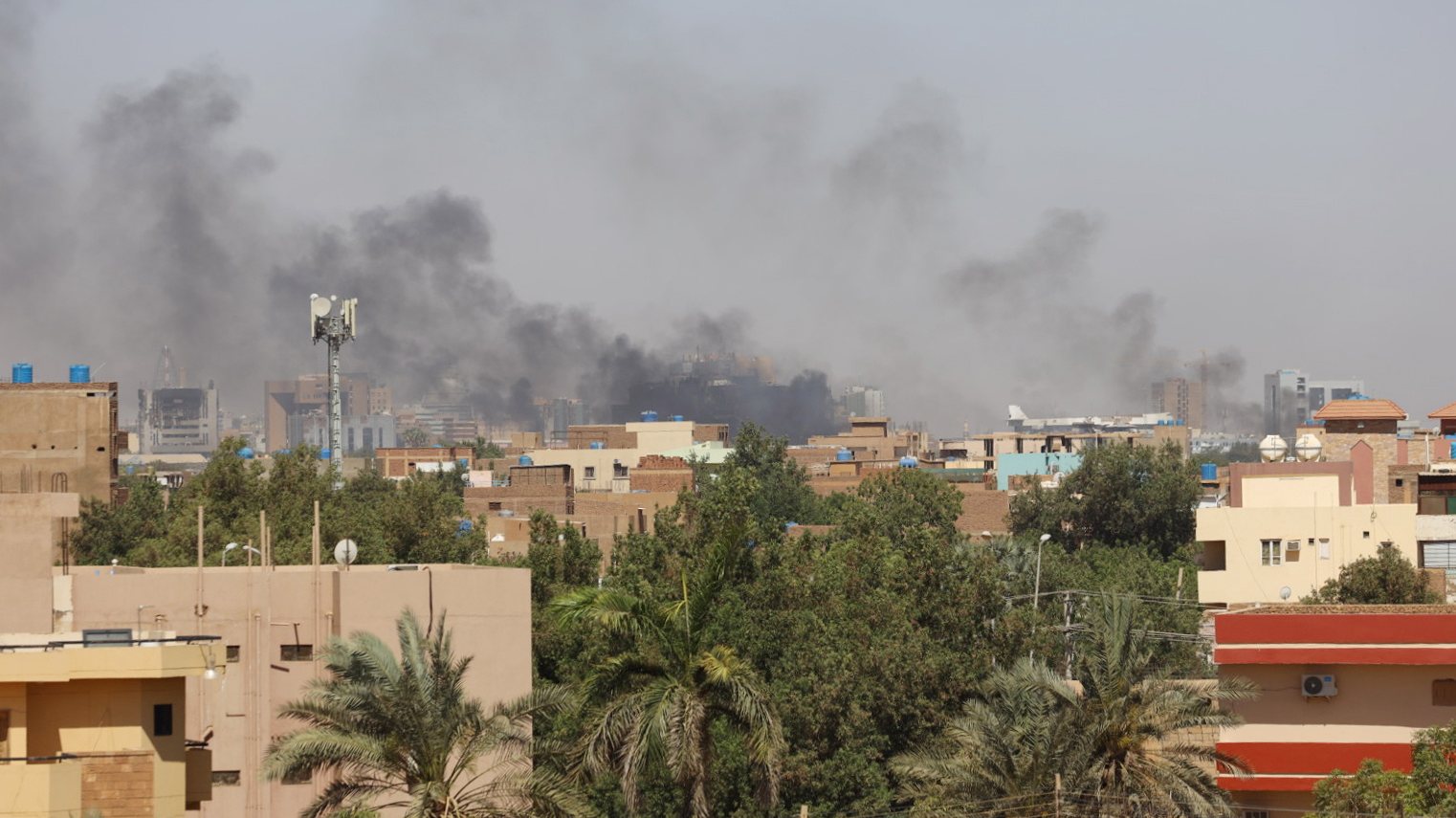Given the situation in Sudan, the UN has warned that both parties to the conflict may be committing war crimes and crimes against humanity, with attacks on residential areas and attempted sexual assaults.
The UN envoy to Sudan explained to the Security Council on Tuesday the chaotic scenario of recent days in that African country, presenting reports of attempted sexual assault and warning of possible war crimes.
In a briefing of the Security Council to discuss the situation in Sudan, the special envoy of the United Nations (UN) mission in the country, Volker Perthes, stated that both sides in the conflict have disrespected the laws and rules of war, indiscriminately attacking densely populated areas, hospitals, shops and civilian vehicles transporting the sick, wounded and elderly.
Sudan. The conflict escalated and several countries designed mega-operations to remove citizens —the Portuguese have already left
“These abuses are unscrupulous and can constitute war crimes or crimes against humanity“, advocated Perthes in relation to the conflict in Sudan, where the army and a paramilitary force have been facing each other for days.
“Residential areas are under persistent attack. Homes, shops, schools, water and electricity installations, mosques and hospitals were damaged or completely destroyed. There are reports of home invasions and rampant looting. These include the homes and cars of Sudanese citizens, UN officials, aid workers and the diplomatic community. We also receive disturbing reports of attempted sexual assault“, he indicated.
In a video call from Sudan, the UN envoy also discussed reports of prisoners are released detention centers in Khartoum, the country’s capital, raising fears of an increase in crime.
As a consequence of the conflict, the prices of basic products have increased throughout the country, even reaching areas spared from the fighting.
In view of the situation in Sudan, which has already more than 400 deadPerthes urged both parties to the conflict to fulfill their obligations under international humanitarian law and ensure the protection of civilians and civilian infrastructure.
Sudan: 1,200 more European citizens evacuated this Monday
“Civilians must have safe passage out of the areas of active hostilities and access to basic products,” he said, before the diplomatic corps.
For now, Volker Perthes has indicated that he has three priorities: a sustained ceasefire with a follow-up mechanism; a return to political negotiations; and the alleviation of human suffering.
The UN Secretary General, António Guterres, was also present at the meeting, where he pointed out that Sudan shares borders with seven countries, all of them involved in conflicts or serious civil unrest in the last decade.
“It is a gateway to the Sahel, where insecurity and political instability further worsen an already catastrophic humanitarian situation,” he warned.
Fearing that the conflict could spread throughout the region, Guterres pointed out that the struggle for power in Sudan is not only putting the future of the country at risk, but “lights a fuse that can explode across borders, causing immense suffering for years and delaying development by decades“.
“The Sudanese people have made their wishes very clear. They want peace and the restoration of civilian rule through a transition to democracy. The parties to the conflict must respect the 72-hour ceasefire negotiated by the United States and unite to establish a permanent cessation of hostilities,” added the former Portuguese prime minister.
The violent fighting in Sudan, which began on the 15th, opposes the forces of General Abdel Fattah al-Burhan, the country’s de facto leader since the 2021 coup, and former deputy turned rival, General Mohamed Hamdan Dagalo, who commands the paramilitary group Rapid Support Forces (RSF).
According to Volker Perthes, at least 427 people died and more than 3,700 people have been injured since the conflict began.
The clashes began over disagreements over the reform of the army and the integration of RSF into the army, part of the political process towards democracy in Sudan after the 2021 coup.
According to the UN Assistant Secretary General for Humanitarian Affairs, Joyce Msuya, even before the conflict, humanitarian needs in Sudan were already at a record level, with 15.8 million people, a third of the population, in need of humanitarian aid.
“Four million children and pregnant and lactating women were malnourished. 3.7 million people were internally displaced. this conflict […] threatens to unleash a whole new wave of humanitarian challenges,” Msuya told the Security Council meeting on Tuesday.
Source: Observadora
